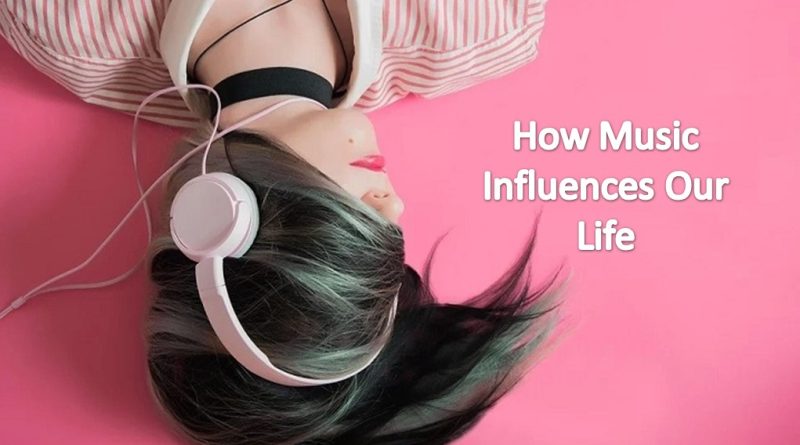The Power Of Music & How Music Influences Our Life
Music is a universal language that affects people whether they are aware of it or not. Music is everywhere in our life for example; in movies, TV shows, commercials, and everyday life. It is a powerful force that can affect people and uplift their moods. Recent studies conducted by The University of Washington, Harvard, and the National Institutes of Health have published that music has profound effects on individuals. Music has been shown to improve the recovery of motor and cognitive function in stroke patients, reduce symptoms of depression in dementia patients, and help patients undergoing surgery experience less pain and heal faster.
It’s a reminder of the beauty and wonder of life.
The NIH is currently studying how playing and listening to music can open up circuits in the brain that scientists don’t quite understand. Learning to play an instrument improves brain processes and can improve children’s reading, math, and other school skills. Stroke survivors who can’t speak can sometimes sing, and Alzheimer’s patients who can not speak or move their hands may light up and begin humming or tapping along with a tune. Music therapy has been shown to help them “retrain brain pathways to communicate.” Similarly, Parkinson’s patients sometimes walk better to the right beat.
Music is the best medicine for the mind
Music is a therapeutic tool used in a range of settings to reduce stress, ease symptoms of depression and anxiety, and support those dealing with serious conditions and diseases. A music therapist engages clients with guided activities that combine creating/composing, listening, moving, and responding to music with the goal of helping them make positive changes to improve their overall well-being. Some music have a relaxing effect that can calm down your mood, slowing your heart-rate and coaxing the rest of your body to respond similarly. A music therapist might sing soothing songs to help comfort someone who’s afraid or stressed — much as your parents might have done for you when you were a baby.
Speech on music has the power to heal
Motivational speakers and influencers use this method to motivate the audience with background music and beats.
A tune with a steady beat might encourage calm, rhythmic breathing in somebody struggling with anxiety. A therapist might help someone play an instrument to direct attention away from pain; hearing the music and interacting with the instrument itself may both divert the mind and help release muscle tension. Regardless of the music or instruments used, the brain normally has a specific response. Unlike interpreting language, which only engages certain neural pathways, processing all the elements of music – rhythm, tone, melody – requires you to use your whole brain, which builds stronger and healthier neural connections throughout.
Music therapy has been found to have positive physical effects on various parts of the human body. Here are some examples:
Brain: Music therapy may help to reduce muscle tension and promote relaxation, which can help reduce headache symptoms.
Heart: Music therapy can help reduce heart rate and blood pressure, which may benefit people with cardiovascular conditions.
Muscles: Music can activate the body cells and help to coordinate with neurological conditions such as Parkinson’s disease or stroke
Respiratory system: Music therapy can help improve our breathing patterns and lung function, particularly in individuals with chronic obstructive pulmonary disease (COPD), etc.
Immune system: Some research suggests that music therapy may help boost immune system function, potentially increasing the body’s ability to fight off infections and diseases. Recently we used this therapy to treat Covid-19 patients and found that it is working.
Music therapy is a versatile treatment modality that can have a wide range of positive effects on different parts of the body, depending on the individual’s specific needs and health conditions.
The most evident benefit of music is how it can affect mood. Music can open you up and take you to different places, and you can use that awareness to feel more in control of your emotional state, experts say; your mood can shift as you find a connection to what you’re hearing — something beyond yourself. Music is an “in the moment” tool to take care of yourself, particularly at times that are challenging. For example, if you are feeling low on energy, upbeat music can help you pick up the pace with an invitation that is welcoming and within reach.
Can music help you study and focus?
Not all types of songs or music are effective for everyone’s study and focus. DJ music or fast-tempo accompanying songs can distract and make it difficult to concentrate on a task. On the other hand, some people find that a completely quiet environment is best suited for studying and concentrating.
It is true that music can help you study and concentrate, but it depends on the type of music, the volume level, and your personal preference. Studies have shown that listening to certain types of music can help improve focus, enhance cognitive performance, and increase productivity.
Music can be useful for you but you should keep on experimenting which will help you to find the right music for study and meditation.
How does music reduce depression and anxiety?
Music can reduce your level of pain, give you more relaxation, improve your communication skills, and provide a feeling of comfort in stressful times. One way music can be used to reduce pain is through the use of rhythmical breathing techniques in music therapy. This type of intervention has been shown to down your anxiety levels, lower heart rate and blood pressure which can eventually reduce pain levels overall. Additionally, some research suggests that certain types of musical interventions may even have an analgesic effect due to their ability to activate endorphins in the brain, which are natural pain relievers.
Music therapy promotes relaxation by providing a distraction from stressful thoughts and feelings. Listening to calm music can help create a sense of peace and tranquility which may allow for more effective coping strategies when dealing with difficult emotions or situations such as those experienced in hospital or hospice settings.
Music can also help heal emotional wounds. It provides a feeling of comfort and solace during times of distress, allowing us to express our feelings without putting them into words. Studies showed that listening to music releases endorphins, which can help reduce anxiety and depression. Songs or Music is also known to increase serotonin levels, which helps regulate our moods and promote positive thinking.
Music therapy techniques
For those struggling with mental health issues such as depression or anxiety, music therapy may offer an effective form of treatment or therapy. A trained therapist will use musical activities or strategies such as singing or playing instruments to facilitate communication between patient and therapist while encouraging self-expression through sound exploration techniques like improvisation or songwriting exercises.
By exploring emotions through music rather than talking, individuals may find it easier to express themselves and work through their struggles. Music therapy is an effective and proven practice that uses music to address the physical, emotional, cognitive, and social needs of individuals. It is beneficial in a variety of places, including hospitals and hospices.
In conclusion, music permeates every aspect of our lives and is the most significant aspect of life in every nation and language. This is a potent instrument that can cheer people up who are going through a hard time. It can also elevate our mood, amuse us, and inspire us to go toward our objectives. It is important to consider its medicinal benefits. Moreover, music can soothe people in difficult situations and aid in the healing of emotional scars. People may find it simpler to communicate and overcome obstacles if they use music to explore their feelings.


Comments are closed.